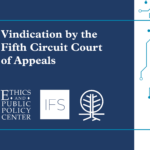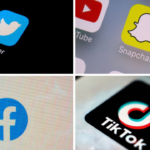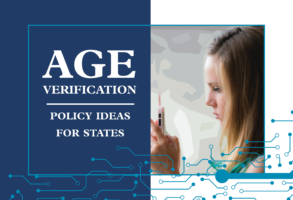
Published September 14, 2021
Last Thursday, Texas’s Governor Greg Abbott signed into law a social-media bill that aims to protect Texans from viewpoint-based censorship by social-media companies. Texas is now the second state this year — following Florida — to pass a law of this kind. Yet unlike Florida’s law — which was swiftly enjoined by a federal district court, over potential First Amendment violations — Texas’s is carefully constructed to avoid legal challenges. So while the Sunshine State’s efforts to take action against Big Tech are admirable, its approach should not be replicated. States should instead look to Texas.
There are several strong provisions in the Texas law that other states should especially seek to replicate. First, the type of censorship prohibited in the statute is based on viewpoint. It states that “a social media platform may not censor a user, a user’s expression, or a user’s ability to receive the expression of another person based on the viewpoint of the user or another person; [or] the viewpoint represented in the user’s expression or another person’s expression . . .” Thus, the statute is explicitly prohibiting viewpoint discrimination by social-media companies.
As Philip Hamburger and I recently wrote in the Wall Street Journal, there are several reasons why such a state antidiscrimination law will hold up in court. First and foremost, the statute avoids conflicting with Section 230 of the 1996 Communications Decency Act — the federal statute that many opponents will argue preempts Texas’s law. Section 230 protects the tech companies from liability for restrictions on enumerated types of content. Yet the Texas statute bars only viewpoint discrimination — not content discrimination — and so completely avoids any conflict with the federal statute.
Furthermore, as we explained, there is a clear distinction ingrained in Section 230 between a company’s own speech and the speech of others for which it provides a conduit. A statute limiting the ability of a Big Tech company to express its own views would almost certainly be unconstitutional. But a law limiting viewpoint discrimination where the companies serve as a publicly accessible conduit for the speech of others is another matter.
Finally, the tech companies’ speech claims depend on whether they are common carriers. The Texas law recognizes that large tech platforms can be regulated as common carriers. When a company offers its services to the public, it can qualify as a common carrier in one of two ways. It can serve a public function, or it can enjoy market dominance. Texas’s statute recognizes that large social-media companies meet both of these justifications — which ultimately allows states the power to regulate them, including by banning their discrimination.
It is worth noting as well that the censorship provisions of Texas’s law expressly apply only to social-media platforms with more than 50 million active monthly users in the United States. In setting this size cap, Texas is ensuring that these common-carrier principles will not apply to small online-business websites, as opponents might fear.
The second critical strength of the Texas law is that it doesn’t authorize damages; it merely enables censored users to seek declaratory and injunctive relief backed up with contempt proceedings. In not offering a provision for damages, the statute avoids running into the liability-protection language of Section 230. (Section 230 (c)(2) protects platforms from liability, in the sense of being held liable for damages, when they restrict an enumerated list of content on their platforms.) Again, this provision ensures that the law does not conflict with Section 230.
A few other final strengths of the law that other states would do well to model are its severability clause, geographic protections, and disclosure requirements for social-media companies. The strong severability clause ensures that even in the unlikely event that a piece or pieces of the law are found unconstitutional by a court, the entire statute is not struck down and other provisions are preserved.
Secondly, the geographic protections under the censorship provision — i.e., that a platform may not censor based on “a user’s geographic location in this state or any part of this state” — means that Facebook or Twitter, for example, could not retaliate against the state’s law by blocking Texans’ accounts and posts. This geographic-discrimination protection would prevent the type of retaliatory situation we saw arise in Australia.
Lastly, the law’s disclosure requirements will not only increase needed transparency by social-media companies but also help ensure that individuals in Texas who are censored by social media can have access to the types of evidence they may need to prove whether they were discriminated against.
For all its strengths — especially its legal defensibility in court — Texas’s social-media law should be applauded and replicated. Indeed, it’s high time that other states around the nation go forth and follow.
Clare Morell is a policy analyst at the Ethics and Public Policy Center, where she works on the Big Tech Project. She worked in the White House Counsel’s Office and the Justice Department during the Trump administration.
Clare Morell is a Senior Policy Analyst at the Ethics and Public Policy Center, where she directs EPPC’s Technology and Human Flourishing Project. Prior to joining EPPC, Ms. Morell worked in both the White House Counsel’s Office and the Department of Justice, as well as in the private and non-profit sectors.









